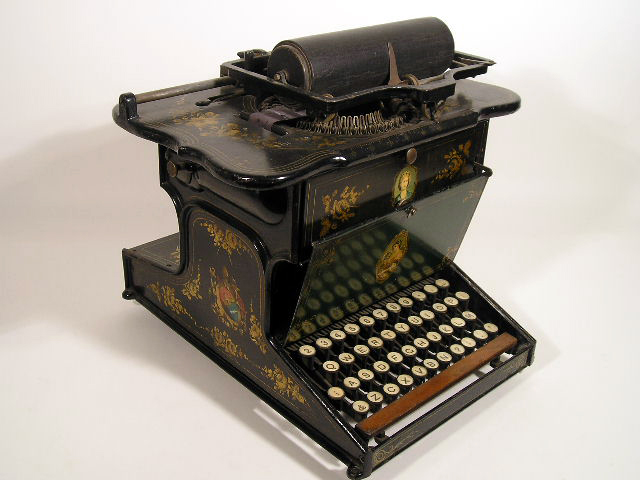We go about our day-to-day lives surrounded by many different types of technology. All of the technology that we use today started from somewhere. For example, the computer I am using now to write this blog post, wouldn't be possible without the invention of the typewriter.
In this post I will be sharing a few interesting facts I learned about the typewriter from my classmate, Destini Hunt's presentation and blog post; I will link her blog here: Destini Hunt's Blog
 |
| Sholes Glidden Typewriter in 1874 |
The story of the typewriter we know today began way back to the year 1714 when Henry Mill had patented a writing machine. Although, it would take almost a century for inventors to finally turn Henry Mill's dream into reality.
There were many types of writing machines that were patented over the years, however the first breakthrough for the typewriter didn't occur until 1868 when Christopher Latham Sholes, along with his colleagues, created the Sholes and Glidden typewriter.
Early typewriters no doubt began to pave the path for the technology and communication we know now, but these early machines still needed some tweaking. For instance, the typewriters up to 1878 (when the shift key was introduced) were only capable of writing and printing in capital letters. The early 20th century was also the first time writers were able to see their work in real time, rather than typing a full page only to see errors in the beginning of your writing and having to start all over again.
The last part of the typewriter's transformational change is when electric typewriters came into existence. Allowing for faster and more efficient work to be produced as well as less strain for the typer.
 |
| QWERTY Key Layout |
The Typewriter's Legacy
Even though typewriters aren't commonly used today, it's legacy can be seen in the QWERTY set up on our phone, computer, and any other online keyboard we use today. So, while typewriters may be a thing of the past now, we wouldn't be able to communicate as effectively without its existence.
No comments:
Post a Comment